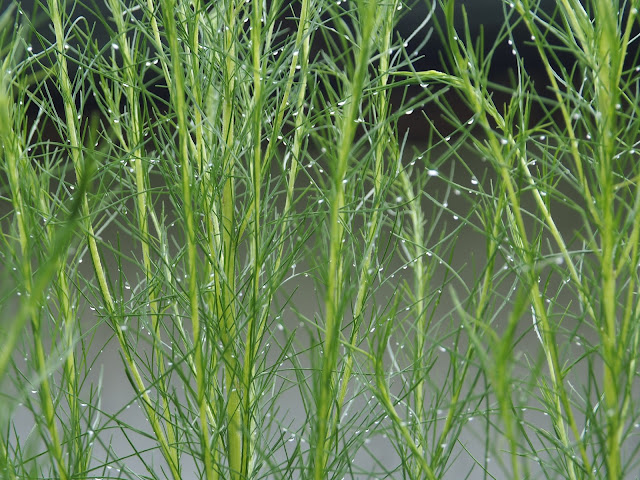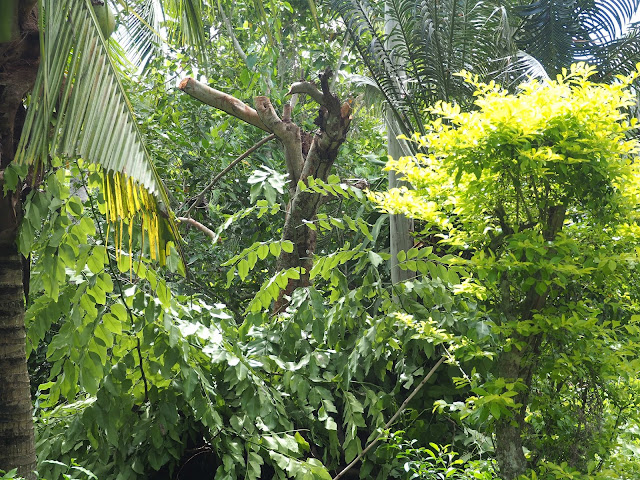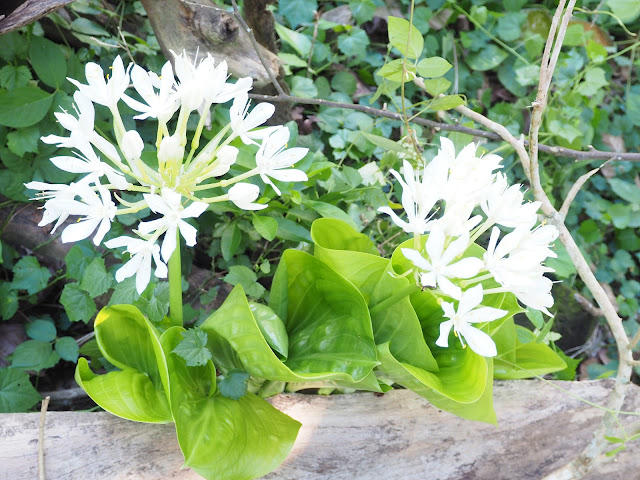This morning i opted to go out, literally from bed i just slid on my slippers and go out clinging my camera. I felt a bit hungry but that can wait till i return. I intended to be out for just maybe an hour. It turned out that it rained that night, which i didn't even notice, maybe i had a very deep sleep. The plants are all still wet and there are still some puddles on the sidewalk. I am very familiar with the vegetation, the cracks on the pavement, the possible insects i will be spotting, and a lot more.
But i am always fascinated with my findings, as if it happened only the first time!
There is nothing more revujenating than the fresh air after the rains at night! And there is an emotion evoked by these fully refreshed grasses with still the dews on them.
Even the Artemisia scoparia, a weed favored by our butterflies, look so healthy.
I spent lots of time trying hard to get some macro shots of the bubbles, got lots and lots of shots.
I refer to this as my terrarium, with grasses mirrored in the bubble.

Our sidewalks are teeming with healthy weeds with these violet flowers, Ruellia tuberosa. I also spent a lot of time looking for any larvae eating them, they wont run out of food in this lush growth.
It is disappointing that our golden shower tree, Cassia fistula, has been fully pruned as it grows so enormously. The green and yellow butterflies, Catopsilia pomona, will find some alternative hosts as food. I just don't know what those plants are.
My single bush of Duranta erecta, a favorite nectaring plant for most of our butterflies, already need some trimming. The berries are already turning yellow, getting old. It has to be rejuvenated too. Can you see the male Mormon on it? Papilio polytes
Some black ants converged on towing their big food, cricket, to their nest.
I found 5 of these black thorny larvae on my hoya plants, many young leaves are already sacrificed as their food, so i gathered them and transfered to an area far from the hoyas. I wonder if they can find alternative food there. But these creatures are voracious, and they walk so fast.
A pollinated hippeastrum failed to grow, aborted before its time. The sad thing about this plant is that they flower only once a year! It is another year of waiting for another attempt in cross pollination.
Our papaya with violet/blackish petioles have plenty of small fruits. There are 2 ripe fruits now, but they are not spared by the crows that linger in our area for whatever food they might find, including my mother's chicks if they are not properly protected.
Lastly, here is a lovely find. A pair of blue-naped kingfisher are so noisy on our camansi tree. They are a bit far up the tree, and i only have a 50mm lens, so this is heavily cropped. At least we can see them a bit clearly. The female on top seem to be talking as its beak is widely open.
My intended time for walking definitely did not materialize, it was extended until i was out for 3 hours, 6:30 - 9:30 a.m. I cannot anymore pretend that my stomach is not complaining, i am very, very hungry now that i have first to have breakfast. Besides, the sunlight is already a bit biting the skin.































